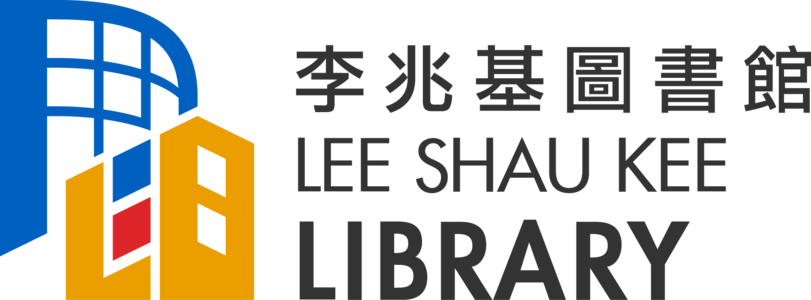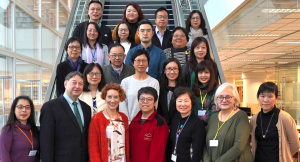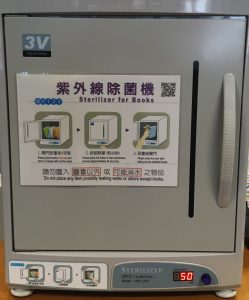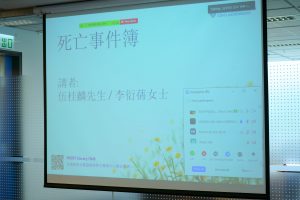
Issue No. 116
April 2020
Transformative Agreements
On January 17, Ms. Colleen Campbell of Max Planck Digital Library conducted a workshop for us. She coordinates the Open Access 2020 Initiative, which aims to transition scholarly journals to new open access publishing models. She was joined online by Ms. Ivy Anderson of the California Digital Library who oversees shared collections activities of the ten-campus University of California system. These two experts shared their rich knowledge and experience for the JULAC Workshop on Transformative Agreements.
Twenty librarians from JULAC libraries attended this workshop – members of the JULAC Consortiall Committee led by Diana Chan and the Research Support Committee chaired by Louise Jones. We learnt how to negotiate transformative agreements with publishers under which funds spent for subscriptions are repurposed to cover costs associated with open access publishing. We also learnt strategic and operational considerations in negotiations. We aimed to avoid institutions paying twice for subscriptions and hybrid OA publishing.
Transformative Agreements (TAs) should have these components:
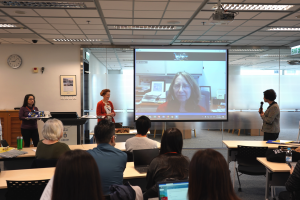
• Authors retain copyright (CC-BY)
• Transparency
• Cost-neutrality with respect to current subscription
• Constrain costs, to start: no double-dipping, no Article
Processing Charges (APCs) paid “in the wild”
To prepare for TAs, we should look at it from a publishing lens instead of a subscription lens. We need to analyze our own publishing profiles such as:
• Where does my institution publish?
• How much of our outputs are OA?
• How much are our authors’ spending is on APCs?
• How many articles are grant funded?
• Would a flip to OA with publisher X cost more?
• How much of publisher X’s output is OA?
We discussed the cost allocation and multi-payer models. Whichever model is used, building coalition with all stakeholders is of utmost importance. As a practical outcome of the workshop, we have produced an OA2020 roadmap for transformation for JULAC to use. We are grateful to Colleen and Ivy for sharing their practices and data with us.
Book Sterilizer Available
The Library has an ultraviolet (UV-C) book sterilizer on the Ground Floor. It is available for you to use on Library books, or your own personal books. It kills 99.9% of surface bacteria and viruses, including COVID-19.
Library staff already process all returned materials through an ultraviolet “book wash”. But if you want to also sterilize any books after you check them out, feel free to use this machine. Just follow the instructions for placing the books in it, and press the button, and the books will be ready in less than 1 minute.
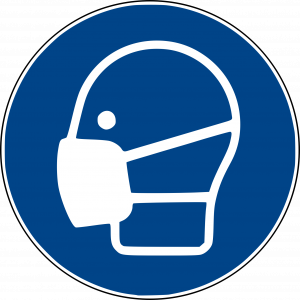 Coronavirus Actions by Library
Coronavirus Actions by Library
The Library has been extremely proactive in implementing policies and procedures to safeguard you and our staff from exposure to the COVID-19 coronavirus. This has involved coordinating with various other University departments and developing new and improved procedures and workflows for Library access and collection usage.
Most obvious to you has been the phased reopening of the Library, floor by floor. The LC reopened on February 24, with a book pickup service available at the entrance of G/F. Two weeks later, on March 9, we were able to reopen the ground floor and the rest of LG1. Books can be requested and Library staff will bring them to the Circulation Counter for you to check out. Lower floors will reopen as user need and the virus situation allows.
Less obvious measures include:
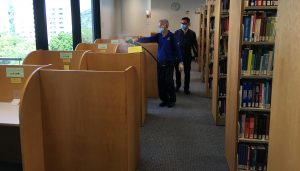 Protection
Protection
•Early spraying of the entire building with an anti-microbial coating (please do not use alcohol products on Library furniture, railings, computers and keyboard, etc., as this will remove the coating).
Cleaning
•Upgrading the frequency of cleaning, and obtaining approval for stronger cleaning materials, including bleach-based products for use in toilets.
•The Library is cleaned twice per day – once before opening, and once after lunch.
•Toilets are cleaned three times per day.
•Application of anti-microbial sheets to high-contact surfaces, including some door handles and push panels, copier control panels, etc.
Social Distancing
•About ¾ of the chairs have been removed. Please do not move chairs around. Over time, more chairs should return.
Hygiene
•All users are required to check their temperature and to wear a mask before entering the Library.
•As a courtesy to others, do not take off your mask.
•Disinfectant gel dispensers are at all service points.
•Air flow is increased with stronger ventilation.
•Water spigots on the fountains have been capped. Please use the bottle and cup refill outlets.
Book Handling
•Library staff wear mask and gloves when retrieving books from the three campus book returns.
•All returned books are processed through a UV-C book wash.
Your cooperation with these measures, and with any instructions from security or Library staff is the key to our mutual safety. Let’s all work together to ensure improved outcomes.
死亡事件簿
這學年圖書館與學生輔導中心合作舉辦 的第三場生死教育講座「死亡事件簿」在三月六日完成。為減低病毒傳播風險,此次講座在線上通過Zoom軟件舉行,同時也在圖書館Facebook專頁上直播。 當天有約120位同學同事在Zoom觀看,雖然不能在現場和兩位講者對話,大家也能透過Zoom發問參與討論。
的第三場生死教育講座「死亡事件簿」在三月六日完成。為減低病毒傳播風險,此次講座在線上通過Zoom軟件舉行,同時也在圖書館Facebook專頁上直播。 當天有約120位同學同事在Zoom觀看,雖然不能在現場和兩位講者對話,大家也能透過Zoom發問參與討論。
這次講座有兩位講者。在兩小時內,伍桂麟先生分享了面對生命終結如何作臨終安排、道謝、道愛、道歉、道別和斷捨離,以求死而無憾。另一方面,身邊的親友又怎樣處理哀傷、安慰喪親者和安排喪禮及提防殯儀陷阱。
第二位講者李衍蒨女士是美國俄勒岡大學哲學學士(學系榮譽畢業生)及香港中文大學人類學文學碩士,於美國邁阿密殮房及相關機構完成實習工作。隨後於英國攻讀法證學及鑑證科學研究碩士,主修法醫人類學,期間於東帝汶法證科擔任法醫人類學家及顧問,處理無人認領的人體殘骸。除此之外,亦先後到波蘭進行生物考古學、法醫人類學及法醫考古學研究,以及於塞浦路斯項目擔任助理顧問。李女士從法醫人類學角度解釋何為非自然死亡,以及法證攝影重點。
•臨終時的人的訪問特別令我有所體會。他們在訪問中都表示自己有不少遺憾,並希望回到過去。他們的訪問啟發了我並令我有所反思。我明白到人生無常、許多事情都是意料之外,所以我們應該要珍惜眼前人,盡情享受生活,務求令自己在生命的終結時不會感到遺憾。
•在有關於法證攝影方面的知識我覺得是最有幫忙的。因為自己本身對查案、法證頗有興趣,所以這次有機會了解到有關於法證攝影在現實中是如何進行令我獲益良多。
Online Information Instruction Under COVID-19 Conditions
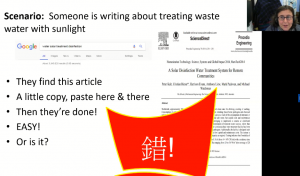 Like other sections of HKUST, Library staff had to respond quickly to this unprecedented situation.
Like other sections of HKUST, Library staff had to respond quickly to this unprecedented situation.
We handled many more questions via remote methods. Comparing the ~6 weeks between January 29 and March 13 with the first 6 weeks of the fall term, we handled a surge of questions.
Library staff in Access Services and Information Instruction and Collection services handled:
• 392% more email queries (110 vs. 28)
• 40% more WhatsApp queries (62 vs. 44)
We also had to quickly learn how to use Zoom and begin to deliver workshops online. Instruction librarians took part in several training sessions offered by CEI in late January and early February. We offered the first Zoom-based library workshop on February 20, one day after the official start of the spring term.
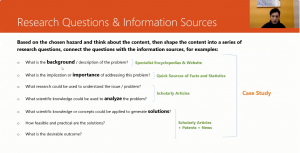 Since then, we have begun to offer all our usual instruction sessions online, with many scheduled in March, April, and May, along with online research coaching sessions.
Since then, we have begun to offer all our usual instruction sessions online, with many scheduled in March, April, and May, along with online research coaching sessions.
• 8 workshops in February – 263 attendees
• 8 workshops in March 1-13 – 287 attendees
This new mode of teaching has presented challenges. Instruction librarians had to quickly learn new ways of interacting using Zoom, for example by making use of the polling functions and using the yes/no to check for understanding.
We often must have at least one additional instruction librarian to act as co-host to manage the online chat and answer student questions during teaching. Hands-on workshops where the students must learn to use new software or databases are far more challenging, because an instructor cannot do a quick glance, and share-screen can be slow.
 There are also some positives – the difficulties students and instructors share have made us a bit more empathetic, with a feeling of “we’re all in the same boat”. Students and instructors now have more incentive to use previously developed e-learning videos and games. While we are sure everyone will welcome a return to face-to-face teaching, it’s good for us to have a new tool for teaching, learning, and meeting.
There are also some positives – the difficulties students and instructors share have made us a bit more empathetic, with a feeling of “we’re all in the same boat”. Students and instructors now have more incentive to use previously developed e-learning videos and games. While we are sure everyone will welcome a return to face-to-face teaching, it’s good for us to have a new tool for teaching, learning, and meeting.
Exhibition Updates
Following the University’s advice to avoid gatherings, we have postponed the official opening of our exhibitions until May.
觀古知今:歷代印章及印譜展
Glimpses into the Past: Chinese Seals and Seal Impression Catalogues through the Dynasties
The exhibition will showcase “jiyu” seals (吉語印),  along with official and private seals from the Qin (221-207 BCE) and Han (206 BCE-220 CE) dynasties onward, as well as more recent works by modern seal carvers. Displayed in chronological order, these works together reflect the development of the art of seal engraving from ancient times to the present.
along with official and private seals from the Qin (221-207 BCE) and Han (206 BCE-220 CE) dynasties onward, as well as more recent works by modern seal carvers. Displayed in chronological order, these works together reflect the development of the art of seal engraving from ancient times to the present.
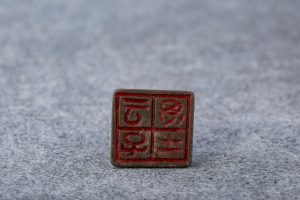 An array of important seal impression albums (印譜) will be displayed alongside the seals, so viewers can follow the evolution of seal carving across time. They will be displayed in two phases. Thirty-plus types of albums featuring the legends of ancient seals and famous seals by modern seal carvers of different schools will be shown first. The second phase will focus on manuscript seal impression albums. Surviving only in small numbers, manuscript albums are extremely rare and precious. This exhibition will be the first time that manuscript seal impression albums have ever been publicly displayed.
An array of important seal impression albums (印譜) will be displayed alongside the seals, so viewers can follow the evolution of seal carving across time. They will be displayed in two phases. Thirty-plus types of albums featuring the legends of ancient seals and famous seals by modern seal carvers of different schools will be shown first. The second phase will focus on manuscript seal impression albums. Surviving only in small numbers, manuscript albums are extremely rare and precious. This exhibition will be the first time that manuscript seal impression albums have ever been publicly displayed.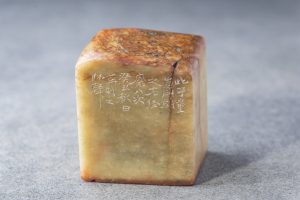
Jointly organised with the Division of Humanities, the exhibition will open on May 7.
A guest talk celebrating the Opening will be conducted by Mr. Lam Cheung Chung, a foremost collector who has lent us these cultural treasures for display.
易 – 丘子乎極光攝影作品展
Yi – Aurora Photography Exhibition of Anthony YauThis exhibition will feature the Aurora photos and videos taken by Mr. Anthony Yau, a HKUST alumnus. A professional photographer, multimedia designer, and artist specializing in polar and landscape photography, Anthony has visited and led over 20 photographic tours to Alaska, the Arctic Circle, Iceland, Northern Europe, and Tasmania in the past seven years. While Anthony has exhibited widely, this is the first time he returns to his alma mater to showcase his works.The 30 photos on display will be arranged in five series, so that viewers can easily see and feel the beauty and character of the Aurora. • Yin and Yang (陰陽)
• Metamorphosis (蛻變)
• Miraculous Glow (靈光乍現)
• Aurora Star Trials (極光星流跡)
• Aurora Storm (極光風暴)Collaborating with the Media Technology and Publishing Center, the exhibition will open on May 12. Anthony will share his experience and techniques of taking good Aurora photos before the Opening. Stay tuned for announcements.
LibQUAL+® 2019 – Results/Actions
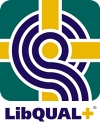 The Library conducted the LibQUAL Survey in fall 2019 with 3,578 responses (18% response rate). LibQUAL measures users’ minimum, desired, and perceived levels of service quality across three dimensions: Affect of Service, Information Control, and Library as Place.
The Library conducted the LibQUAL Survey in fall 2019 with 3,578 responses (18% response rate). LibQUAL measures users’ minimum, desired, and perceived levels of service quality across three dimensions: Affect of Service, Information Control, and Library as Place.
We are happy to see our Overall Perceived Mean is 7.11 (out of 9), the highest among our previous scores.
Five UGC-funded libraries conducted the survey this time. HKUST respondents made us 41.62% of the total responses among the five (3,578 of 8,596). When benchmarking against JULAC libraries, we were rated higher than average in Affect of Service and Information control. This shows that users recognize and appreciate our staff’s strong professionalism and dedication to service.
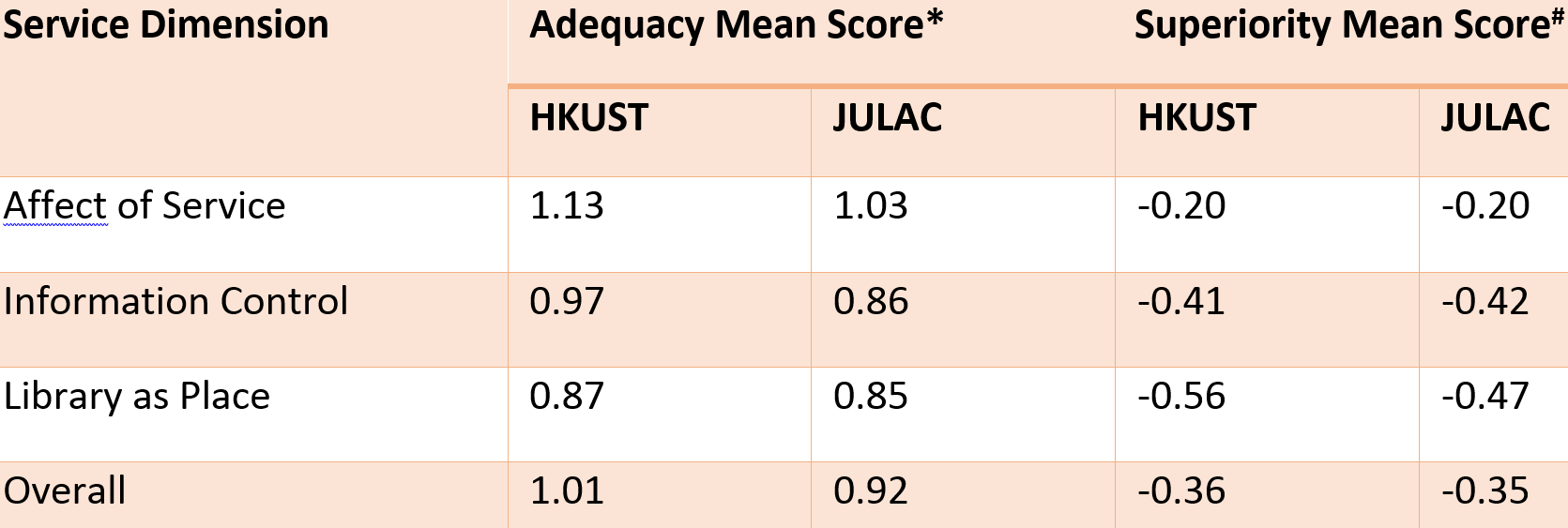
* The higher the Adequacy Mean Score, the better the library is performing.
#The smaller the negative Superiority Mean Score, the closer to the superiority level the library is performing.
We received a slightly lower than average JULAC rating on Library as Place. We attribute this to our building and facilities not being upgraded in recent years; while other JULAC libraries have created new facilities like MakerSpaces, visualization spaces, digital studios etc. This is an area we are planning to improve upon.
Respondents gave 1,435 comments. 362 were praises and compliments.
We have looked into users’ concerns. Plans to improve are being developed as follows:
Noise: The Learning Commons is the noisiest floor. In addition to reinforcing frequent patrols, we need to designate additional areas as Quiet Study Zones.
Facilities: Users want more study rooms, seats, individual study space, group space, etc. We plan to convert more shelving into study space over time. We will review and monitor room bookings to avoid abuse and conduct more frequent patrols to enforce policies.
Temperature: Complaints about being cold is a long-standing issue. We strive to maintain a good balance between comfort and preservation of library materials. Library and CMO work to maintain a temperature of around 24 degrees, with a humidity of 55-60%. We are working to adjust the setting of air handling system for smaller zones, upgrade the local fan coil units with in-room A/C controls in group study rooms, find ways to provide “heat maps” to show users current temperature in different areas, and explore funding virtual thermostats at user seats where patrons can adjust their local temperature.
Library resources: Users want more and newer library resources, such as more novels, popular books, Chinese books, Nature-branded journals or protocols, and some topical areas, etc. We need to strike a balance in providing a good spectrum of resources that fit the majority with limited resources. We will maintain the popular patron-driven e-book acquisition program to ensure that a wide range of quality e-books is available for discovery via PowerSearch.
Theft & Security: As more users bring expensive electronic devices to the Library, property theft has become a significant security concern. The most effective way to prevent theft is for users not to leave valuables unattended. Actions already taken include reminding patrons, adding security guards, and more frequently collecting unattended valuables to the Circulation Counter. The Library also plans a publicity campaign and more consistent imposition of demerit penalties when users pick up their staff-removed unattended belongings. We are also planning to install short-term self-service lockers and CCTVs in the Library.
Seat Hogging: We always remind users to fill in a “hold form” at each study carrel to hold their seats for less than 30 minutes because of a short break. We plan for more vigorous removing of unattended belongings in carrels during mid-terms and exams when the Library is crowded.
Others: These include comments on staff, student helpers, opening hours, Learning Commons, room booking, food and drinks, library classes and workshops, chair height and comfort, furniture needing upgrades, soundproofing, hygiene, air quality, etc. These will be prioritized and dealt with gradually where feasible.
You can find more details about the LibQUAL survey on the Library Website.
last modified 24 April 2020

